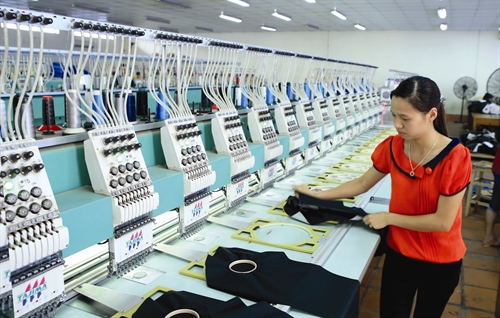Dr. Matthias Dühn, LL.M
 |
Joint ventures are often the only way for foreign investors to access the Vietnamese market, specifically where conditional industry sectors are concerned or Vietnamese joint venture partners hold land that is crucial for business success. What do you have to consider if you want to enter into a joint venture in Vietnam, and what pitfalls should you avoid? Please find here the five basic steps to successfully negotiate joint ventures in Vietnam.
Step 1 - Identifying your potential joint venture partner
The choice of a suitable joint venture partner is of crucial importance, however the identification of a suitable joint venture partner can often be a difficult and tedious process. As good joint venture partners have often already found their foreign business partners, in some instances, the field of candidates (fulfilling qualifications with respect to capital, know-how or other support they can provide) from whom to choose may be quite limited. The search without competent help often involves great financial and timing risks, particularly for small- and medium-sized enterprises (SMEs). The right partners can only be identified by professionals with long local experience and knowledge of local business customs. Further, the building of relationship and trust are key aspects of successful cooperation between Vietnamese and foreign companies. Beyond this, it is very useful to examine what other things the potential joint venture partner (especially if it is a major corporation) does, beyond the specific area of possible collaboration. By looking at the entire range of the other side's activities, and assessing them against the entire range of one's own business, both sides can obtain a clearer understanding of the other, of their goals and operations. It helps either sharpen the basic mutuality of interests or bring to light potential areas of conflict at an early stage.
Step 2 - Reaching a basic understanding
The parties contemplating a joint venture should try to come to a preliminary mutual understanding. A “memorandum of understanding” might cover, in general terms, nature, scope, and location of activities to be carried out, duration of the partnership, financing, facilities to be utilized and management. As a general rule, the joint venture contract stipulates the number of years for which the partners agree to engage and do business. Difficulties may be avoided if the other provisions of the contract (relating to capitalization, material inputs, manpower, etc.) are specific on the time periods within, which “naturalization” (transfer of ownership or responsibilities) is to take place. Sometimes, the term of the joint venture agreement is more or less “predetermined” by the duration of privileges or concessions accorded to the venture by the government, since continuation of the business without them may be unprofitable. Difficulties in reaching agreement on the nature of operations to be carried out, on financing, management, etc., are at times so insurmountable that negotiations have to be cut off before a memorandum of understanding is signed.
Step 3 - Screening your potential joint venture partner
Once a potential joint venture partner is identified, it is essential to screen thoroughly the joint venture partner’s background. However, SMEs often still have no structured process for review of suppliers, service and sales intermediaries in place. It is advisable to check the integrity of your potential joint venture partners in a three-stage process as follows:
- In the first stage, the potential general risk of cooperation should be assessed. This assessment depends on various factors such as type of joint venture, the contract value, and location of the activity and whether or not government agencies will be involved. This is the first filter where “easy” cases can be distinguished from more problematic ones. The first stage generally leads into classification as “low”, “medium” or “high” risk.
- In the second stage, if the potential joint venture partner poses at least “medium” risk, as much specific information as possible should be collected on the envisaged business partner. This is usually any information that can help in the assessment of the joint venture partner: general company data, company reports, credit reports (where available), and information on the reputation or violations of the law in the past, or information about personal relationships to government officials. Sources of information are, for example, relevant databases, credit reports and other information from public records, in addition to the simple internet search. However, one should not solely rely on sometimes inconsistent public resources, but thoroughly combine any publicly available information with comprehensive interviews of local businessmen, as well as use other available local and international resources.
- In the third stage, if the joint venture partner poses “high” risk, one should carefully call on the potential joint venture partner to provide a self-assessment. Such assessment will be based on questionnaires and interviews that external consultants can prepare individually for you.
Step 4 - Negotiating the joint venture contract
Where basic mutual understanding has been reached, and the potential joint venture partner has successfully passed the screening, a detailed contract for the joint venture is drafted. However, attempts to draw up fully comprehensive legal agreements between partners in different countries can sometimes lead to endless delays and frustrations. Eventually, mutual trust and willingness to take some risks are needed, and no amount of legal activity will alter this. The degree to which reliance can be placed on “mutual trust” largely depends on success in the choice of the right joint partner. Often, however, the extent to which the contract meets the individual partner’s aims is a reflection of relative bargaining power. It is also important to recognize the bargaining powers, the hidden motives and the “walk-away” points of the other side. However, both sides must not forget in the negotiations that there are limits beyond which demands for concessions become unreasonable, when the other party will be inclined - or even forced - to break off negotiations. What is required for bargaining is flexibility, a willingness to modify one's position when terms appear clearly unacceptable to the other party, and good legal assistance to eliminate possibilities of ambiguous interpretation once agreement has been reached.
Step 5 - Putting in place a capable Management Team
To make the joint venture work, it is finally essential that a Management Board is appointed that has business expertise and represents fairly both parties’ interests. In Vietnam, it specifically means appointing both experienced local Vietnamese and expatriate(s) that have proven excellent attitudes without any arrogance, shortsightedness, greed and selfishness. Not an easy task, but possible if really tried!
* The author - Dr. Matthias Dühn, LL.M. (Georgetown), Attorney-at-Law, Foreign Registered Lawyer (Vietnam): Matthias has extensive legal consulting experience in ASEAN, focusing on corporate and commercial law, foreign direct investment (FDI), contract negotiations, governance and compliance. In 2007, Matthias has successfully set-up the law- and tax offices of Rödl & Partner in Vietnam. Matthias is a compliance- and governance expert, having worked as the regional Compliance Officer Asia/Pacific for MAN Truck & Bus Ltd. in Bangkok/Thailand. Matthias has also gained extensive consulting experience at the interface between private and public sectors, e.g. as Project Advisor in EU and GIZ-funded projects in several ASEAN countries. You can reach him at: +84 (0)914 247 295 or Matthias.Duehn[at]vietdiligence.com









